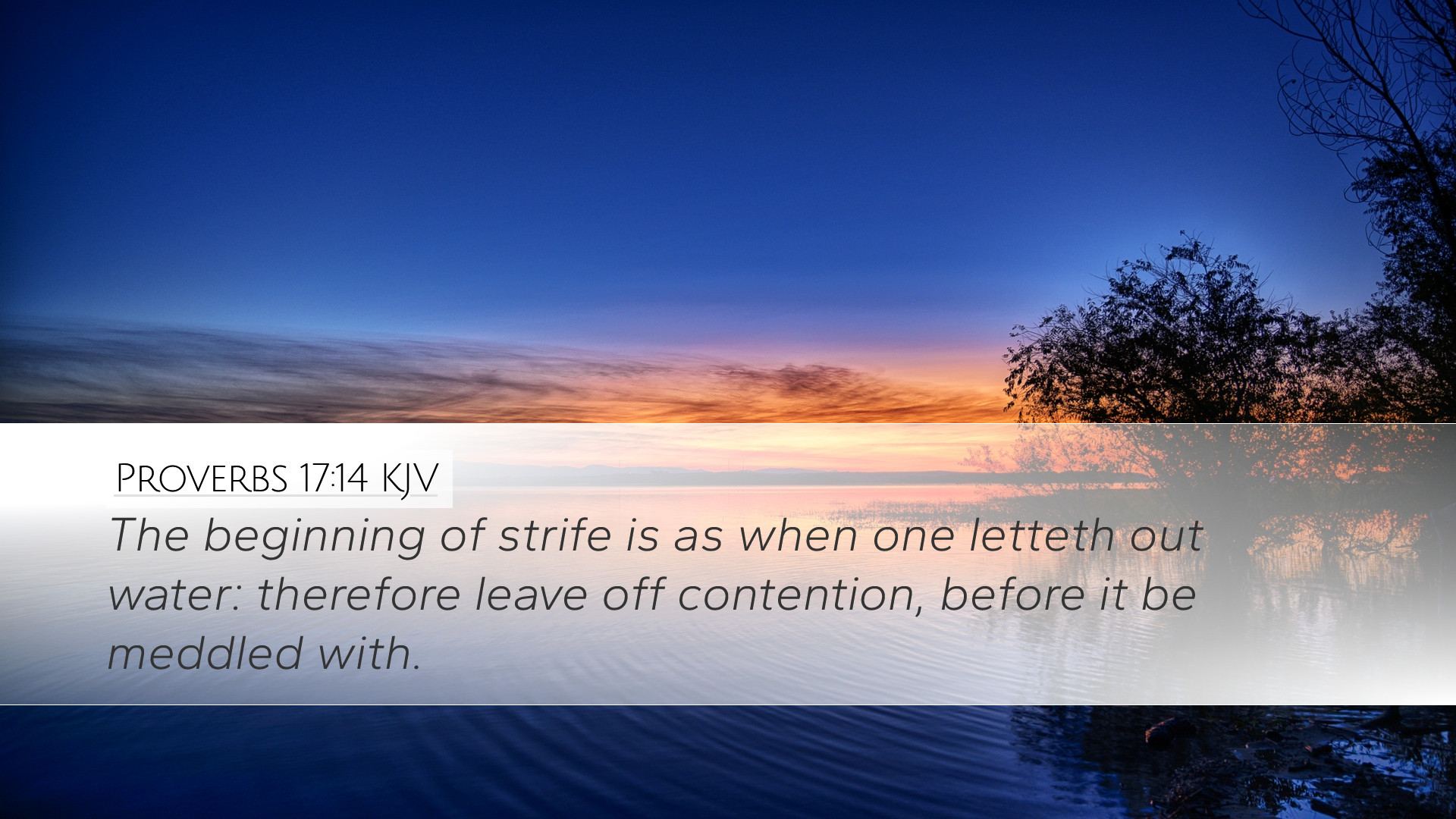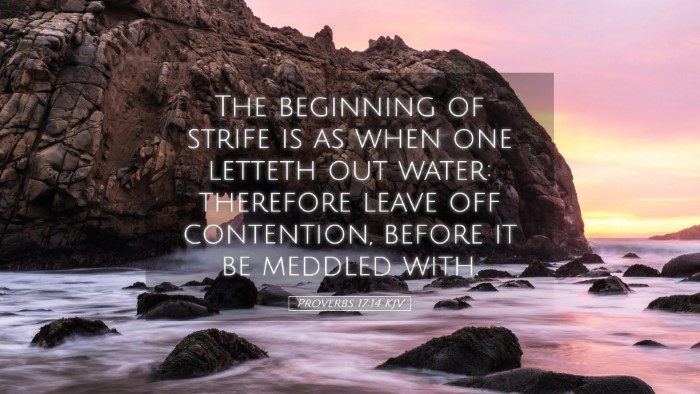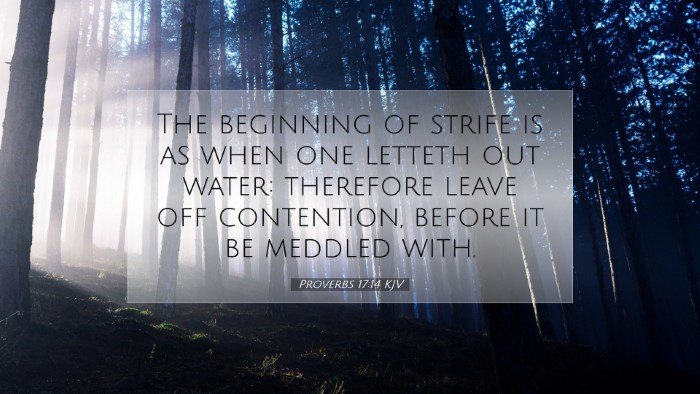Commentary on Proverbs 17:14
Verse: "The beginning of strife is as when one letteth out water: therefore leave off contention, before it be meddled with."
Introduction
Proverbs 17:14 serves as a profound reminder of the nature of conflict and the need for wisdom in handling disputes. This verse articulates the idea that strife, once initiated, can quickly escalate out of control, akin to the uncontrolled flow of water. Public domain commentaries provide us with valuable insights into the meanings and applications of this verse.
Contextual Background
The book of Proverbs is a collection of wise sayings primarily attributed to King Solomon, aimed at imparting wisdom and understanding. The verses encourage moral integrity, the pursuit of knowledge, and the avoidance of folly. Understanding the surrounding context of Proverbs 17 enhances our comprehension of this particular verse, emphasizing the importance of peaceful relationships and the dangers of unnecessary contention.
Insights from Commentaries
Matthew Henry's Commentary
Matthew Henry highlights the metaphor of water in this verse, describing how the first signs of strife can be likened to the initial moment when water is released from a dam or container. Once the flow is set in motion, it becomes increasingly difficult to control. Henry emphasizes that just as one should act decisively to prevent a minor leak from becoming a flood, so too should individuals address conflicts at an early stage before they escalate into destructive quarrels.
- Prevention vs. Reaction: Henry suggests that proactive measures are essential. It is better to avoid conflict than to deal with the fallout after it arises.
- Personal Responsibility: The emphasis on personal responsibility is critical; individuals must recognize their role in either initiating or preventing strife.
Albert Barnes' Notes
Albert Barnes draws attention to the practical implications of this proverb. He points out that contention often arises from pride, misunderstanding, or jealousy. Barnes describes how wise individuals should be careful to avoid any situation that may lead to conflict and to strive for reconciliation and peace.
- The Cost of Strife: Barnes articulates that the cost of strife often outweighs the perceived benefits of winning an argument or defending one’s ego.
- The Importance of Early Intervention: Similar to Henry's thoughts, Barnes insists that addressing minor issues before they swell into larger disputes is wise.
Adam Clarke's Commentary
Adam Clarke underscores the wisdom encapsulated in the proverb, noting that the imagery of water powerfully communicates the idea of uncontrollable forces. Clarke emphasizes that the wise person will choose peace over strife and will endeavor to resolve conflicts before they spiral out of control.
- Spiritual Wisdom: Clarke states that spiritual understanding leads to peaceful living, affirming that wisdom involves recognizing the signs of potential conflict.
- Self-Control: He stresses the need for self-control and the virtue of being slow to anger, aligning with the overall biblical teaching on peaceful living.
Theological Reflections
This verse not only provides practical wisdom for interpersonal relationships but also reflects deeper theological truths about human nature and the Christian call to reconciliation.
- Human Conflict: The propensity for strife stems from a fractured human condition. Understanding this helps believers navigate relationships more effectively.
- Call to Peace: The New Testament emphasizes the call to be peacemakers (Matthew 5:9). Proverbs 17:14 aligns with this calling, instructing believers to seek tranquility.
Practical Applications
The teachings found in Proverbs 17:14 have practical implications for both individual conduct and communal harmony. Here are some applications worth considering:
- Early Recognition: Cultivating awareness of the early signs of contention within personal or organizational relationships can help mitigate conflict.
- Promoting Dialogue: Encourage open dialogue before disagreements escalate. Creating a culture of communication allows for grievances to be addressed constructively.
- Personal Reflection: Individuals should regularly reflect on their own contributions to conflict and strive for personal growth in wisdom and patience.
- Modeling Peace: As leaders—whether in the church or community—modeling peace and wisdom can influence others and create a more harmonious environment.
Conclusion
Proverbs 17:14 provides timeless wisdom about the nature of strife and the importance of preemptive action in conflict resolution. Drawing on the insights of notable commentators like Matthew Henry, Albert Barnes, and Adam Clarke, we see the profound implications of this verse for personal conduct, community relations, and our spiritual walk. As both students and scholars of the Bible, understanding and applying this wisdom can significantly enhance our relationships and our witness in the world.


